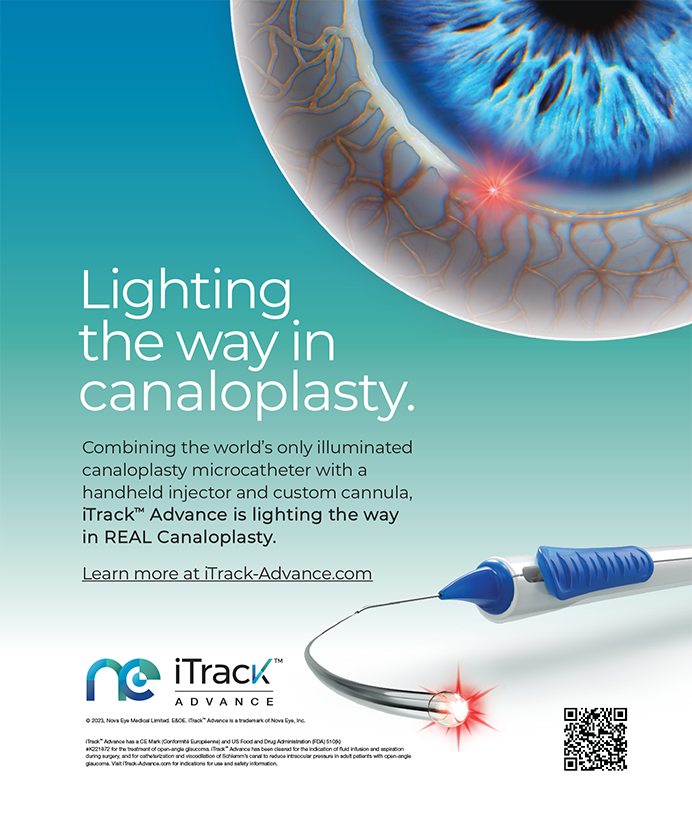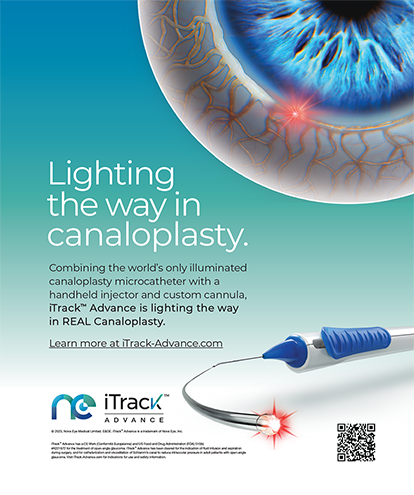What is the focus of your research for the doctorate in medicine that you are currently pursuing?
The focus of my research is corneal ectasia. The three main components of this work are prevention, epidemiology, and novel treatment modalities. Regarding the first, I am exploring techniques to maximize the safety of treating high myopia, particularly with IOLs such as the Visian ICL (STAAR Surgical) and the Verisyse phakic IOL, which is marketed internationally as the Artisan lens by Ophtec BV and distributed in the United States by Abbott Medical Optics Inc. I carried out a meta-analysis of randomized controlled trials with the Cochrane Collaboration. The second part of my research focuses on which people are at risk for developing corneal ectasia, specifically severe disease in the form of acute corneal hydrops. This work has not yet been published, but I hope to identify high-risk patients who may benefit from early corneal collagen cross-linking or other interventions. For the last component of my research, working with John Marshall, PhD, and Avedro, Inc., I carried out the first microwave thermokeratoplasty procedures in vitro on human corneas.
You are fellowship trained in cornea, cataract, and refractive surgery. What are the benefits of having expertise in three subspecialties compared with one?
These subspecialties are really one and the same. It is impossible to manage corneal disease such as postkeratoplasty astigmatism or anterior corneal dystrophies without a knowledge of, experience with, and training in modern refractive laser technology. Laser vision correction is surgery on the cornea, and therefore training in corneal surgery is very important for safely managing unexpected peri- or postoperative problems. Finally, patients with presbyopia, cataracts, and high refractive errors are increasingly interested in alternatives to laser eye surgery, which often involve lens-based surgery such as the implantation of phakic IOLs for high myopia and premium IOLs for refractive lens exchange or cataract surgery.
How did your training at Ophthalmic Consultants of Long Island in New York influence you?
I trained there with Eric Donnenfeld, MD, and Henry Perry, MD. I am enormously grateful to both of them for being inspiring mentors, gifted surgeons, and superb teachers. Drs. Perry and Donnenfeld are pioneers and internationally recognized experts in their fields. I benefited from their combined experience with and wisdom in performing thousands of corneal transplants; advanced high-end cataract surgeries with premium IOLs, including laser cataract surgery; and tens of thousands of laser eye surgical procedures. Dr. Donnenfeld showed me how important it is for innovative surgeons to work with industry to implement new treatment options for our patients and to constantly strive to raise the bar in modern eye surgery. That experience has put me in a unique position, because there are very few consultant ophthalmic surgeons in the United Kingdom who have benefited from this kind of training.
What do you enjoy most about performing laser vision correction procedures?
I take great pleasure in exceeding patients' expectations and enabling them to see better than they ever could with glasses or contact lenses. I particularly enjoy safely treating patients with high refractive errors and astigmatism that many of the more mainstream providers cannot comfortably treat.
What is your favorite way to spend a day off?
I treasure time with my wife and three boys. I enjoy exploring the outdoors and playing sports with them, but most of all, I love seeing the wonder of the world through the eyes of my children. We are going on a family ski holiday, and I am excited to see my 6- and 4-year-olds tear it up on the slopes. It will also be my first time skiing since Dr. Donnenfeld performed my LASIK procedures, and I am looking forward to seeing the Alps in high definition for the first time!


